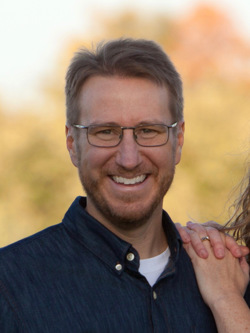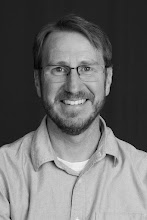My network group, a gathering of pastors in my denomination, asked me to share some of my PhD dissertation findings with them. While my thesis focused on pastoral education I avoided addressing themes directly focused on congregational ministry. Rather than boring my network group with dissertation details, I thought it would be fun to look at some elements of congregational ministry and ask about the influence of technology. Here are some highlights:
How might technology itself
affect our humanness?
I started by familiarizing the pastors with the works of some theorists: Joseph Weizenbaum, Martin Heidegger, and Marshall McLuhan.
Weizenbaum suggests that computer technology
has a way of making us think it's alive. His work reveals the human emotional/relational dynamics active in the use of technology.
Heidegger states that technology changes the
natural ways of being and functioning. He highlights the way technology challenges nature to bring forth rather than
uncovering what is present naturally. This challenging changes creation and ultimately leads humans to become more machine-like.
McLuhan promotes the idea that media changes our
perception of reality. Technologies, such as media, create an environment where we no longer deal directly with “what is” but
“what is” mediated by technology.
Technology and Pastoral Ministry
The Bible
Let’s think about the Bible, a
significant source of authority for evangelicals. When the New Testament letters were
written it was an oral/aural culture where speaking and hearing we the predominant modes of communication and learning. With the written word and literacy increasing, Christian faith became more interior, more
individualistic. People could hear and see the words of scripture. The
Bible could be held by an average person. It was contained
Now, what is the Bible in a
digital world? Some things to consider:
The hearing and reading of Scripture is
mediated by a computer. Are words on a screen the same as words on a page? Are
words spoken by the digital bot the same as words spoken by the pastor or small
group participant?
How are the Scriptures contained
if there are no leather covers or pages to turn?
What is the role of memorization
in spiritual formation? The Web is making memorization not only unnecessary but
illogical? What does it look and feel like to meditate and study scriptures on
a screen? McLuhan talks about media extending and amputating. What is extended
and what is amputated when biblical texts are read and heard online? What
effect is this having on our formation as people, as churches, and as pastors.
Recommendations: Find creative
ways to get people holding Bibles, turning pages, memorizing, and reading to
each other. These are tangible ways to engage the body and nurture a
way of being together and hearing human voices.
Preaching
Let’s think about preaching, an
important mode of communicating the scriptures.
How does a sermon compete with
Tik Tok? Should it? Preachers haven’t had to compete for space online before
but now it seems like online videos need to be entertaining.
In terms of learning and
entertainment, Neil Postmen writes,
…television’s principal
contribution to educational philosophy is the idea that teaching and
entertainment are inseparable. … But no one has ever said or implied that
significant learning is effectively, durably and truthfully achieved when
education is entertainment. Education philosophers have assumed that becoming
acculturated is difficult because it necessarily involved the impositions of
restraints.” (Amusing ourselves to Death, Postman, p. 146)
How do preachers preach to a
congregation they cannot see? We imagine our people in preparation, but now we must imagine them in the delivery.
Preaching has always been a
communal event, that is no longer the case when we watch pre-recorded messages
from our homes.
Recommendations: Beware of
preaching to entertain, try preaching to yourself knowing others will hear it
(rather than preaching to others as the primary objective). Tell stories and use
Zoom to connect with people. Make it a spiritual practice to remind people to
turn their cameras on.
Fellowship and Community
Let’s think about fellowship and
community. If following Jesus is about an enculturation into the church (or
perhaps a more missional posture might be baptizing and forming the whole world,
person by person, community by community, into the image and likeness of God)
then we have to take seriously the role technology plays in making us more methodical, distracted and less empathetic. If God revealed himself as a
human being, what does that mean for the kind of culture in which we are meant to be
participating?
Recommendations: Place limits on
yourself. Model a life of balance, enjoy the best of what our gadgets offer but
set them aside as well. For the time being I have decided not to get a watch
that tracks me steps, etc. I don’t want to be competing with myself and getting
rewarded by my watch. Tech longs for my attention but so does the living God. I must live a balanced life.






